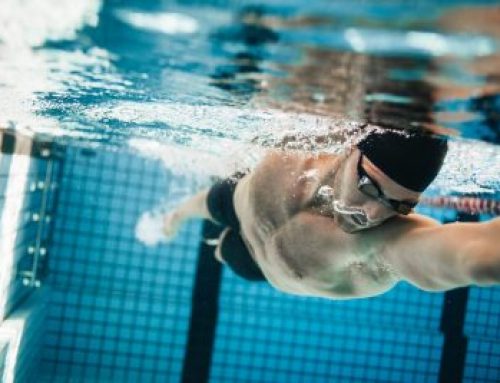“Baseball is 90% mental and 10% physical.”
Most athletes, and even casual sports fans, have heard this famous Yogi Berra quote at one point or another. As a former swimmer, somebody who competed in an individual sport for the entirety of their athletic career, I think the numbers are closer to 99.9% mental and 0.1% physical. My swimming experience tells me that the greater the talent level is in a sports league, in a talented pool (no pun intended), differences in performance are seconds or fractions of a second. Athletes that find success at the college and professional level are those with the greatest mental edge. In fact, success at any level, is often said to stem from a player’s “mental toughness.” But, what does “mental toughness” really mean?
What is Mental Toughness?
Early mental toughness research suggested it meant a mental edge over opponents, being better able to cope with stressful situations. But how do you compare your local gym class hero to, say, LeBron James? Experts have begun shifting their focus inward, and came up with a newer definition: “Mental toughness is a personal capacity to produce consistently high levels of subjective (e.g., personal goals or strivings) or objective performance (e.g., sales, race time, GPA) despite everyday challenges and stressors as well as significant adversities” (Gucciardi, Hanton, Gordon, Mallett, and Temby, 2015, p.28). Translated- mental toughness is the capability of a person to consistently perform their best, in spite of the clutter and chaos that everyday life throws at us.
How do I become mentally tough?
Where does mental toughness come from? Psychology seems to have a chicken/egg debate on this; are certain individuals just born with it (nature) or can it be fostered in the right environment (nurture)? Most research points toward nurture. An athlete’s support system (coaches, family, etc.) are especially important in the development of mental toughness. When athletes feel supported by coaches and parents, they develop the confidence to adapt in the face of difficulties and stress; they grow. Sport is an excellent medium to instill values and teach valuable life lessons to young people. Help your athletes feel safe taking risks and learning from them.
Mental Toughness =/= Mental Health
“Mental toughness” is not the same thing as “mental health.” Though, good coping skills can help both performance AND mental health. The days of athletes possessing a “gladiator” mentality of never showing weakness are behind us. NBA All-Stars Kevin Love and Demar DeRozan famously came forward this year and detailed their struggles with anxiety and depression. Love describes the sentiment that pervades sports, particularly in male sports, “Don’t talk about your feelings. Be strong. Get through it on your own,” essentially the ridiculous message, “be a man.”
Michael Phelps, the most decorated Olympian of all-time, has been at the forefront of a campaign to discuss mental health more openly. Phelps, a Maryland native, admits that he was uneasy about talking to a therapist about his ordeals following his retirement from swimming after the 2012 London Olympics, but says once he did, it offered him stability during his lowest points. Good coping (mental toughness) is neither hiding from tough emotions, nor is it letting shame dictate one’s behaviors. In line with the Reaching Ahead Mental Performance approach, mental toughness IS developing and utilizing skills such as self-attunement and engaging in valued behaviors.
Much of sport training is so focused on physiology, and rightfully so. There are thousands upon thousands of research articles that support that bigger, faster, stronger athletes will perform better. But if sports are truly 90% mental, like Mr. Berra said, then why aren’t we investing more in the minds of our athletes? Some do, and they gain a mental toughness edge in the process.







Leave a Reply